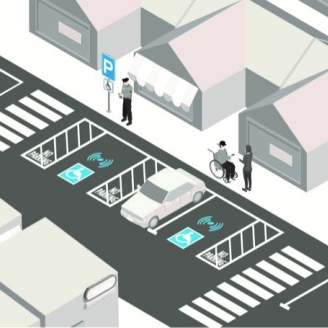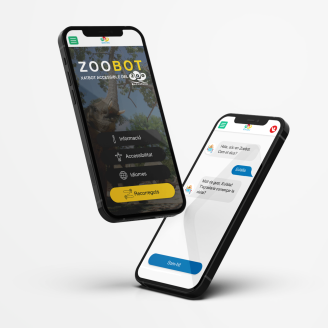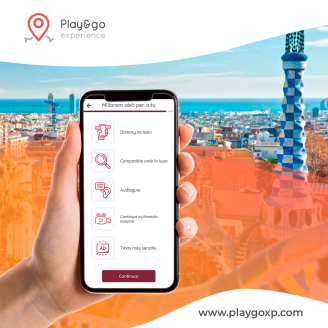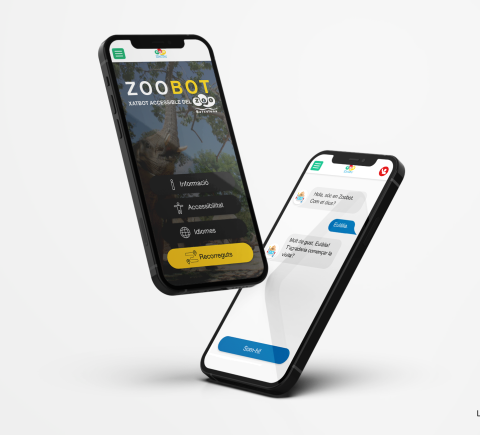
Implementation of solutions to the first three challenges of the InnovAcció 2030 programme under way

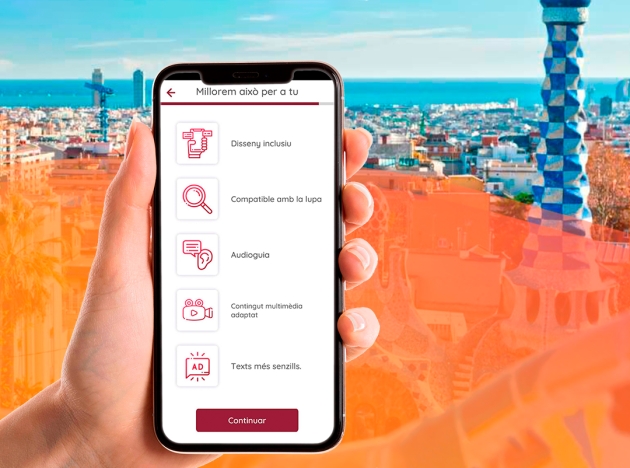
The proposals selected to make visits to Park Güell and Barcelona Zoo more inclusive and improve the occupancy of parking places for people with functional diversity are to be put into practice at the start of the coming year
These technological solutions were chosen and developed with the support and accompaniment of the Municipal Institute for People with Disabilities and various organisations connected to the Accessibility and Independent Living Network
Led by the Commissioner for the 2030 Agenda, Barcelona de Serveis Municipals (B:SM) and the Mobile World Capital Barcelona Foundation under its Digital Future Society programme, the InnovAcció 2030 programme is making headway in the implementation of the first technological apps proposed for speeding up compliance with the 2030 Agenda and the achievement of the Sustainable Development Goals (ODS).
These are the solutions thought up for the first three challenges posed towards the end of last year, the goal of which was to devise technological solutions to make visits to Park Güell and Barcelona Zoo more inclusive, as well as find a technological mechanism for controlling the correct occupancy of street parking places reserved for people with functional diversity.
The process for choosing the proposals, in the form of an innovation competition open to the public and launched by B:SM, and its implementation, are being carried out with the support and accompaniment of the Municipal Institute for People with Disabilities and various organisations linked to the Accessibility and Independent Living Network.
A budget totalling 140,000 euros has been provided for the implementation of these three technological solutions.
A mobile app adapted to the needs of its users
The proposal selected for improving the experiences of Park Güell visitors with sensory and cognitive diversity involves an app that adapts the format of its contents to the needs of its users. It is particularly designed for people with visual, hearing and cognitive accessibility needs, although anyone can use it.
Developed by the company ‘Play&Go experience’, the app includes 2D maps, a user-profiles selector, audio-guide and videos and 360º images of Park Güell’s points of interest. All equipped with technologies such as geolocation, which help to create unique experiences while users travel through Park Güell.
Exploring Barcelona Zoo with a virtual assistant
As for the challenge posed to make visits to Barcelona Zoo more inclusive, the chosen solution is a virtual assistant who, through the user's mobile, suggests content related to the visit. It has been designed, above all, for people with visual, hearing and cognitive accessibility needs as well as individuals with mental-health problems.
The conversational chatbot developed by the company La tempesta and launched as ZooBot. This technological tool is capable of interacting with users and showing interest in their experiences as they travel about the Zoo. It also provides them with information on each species they come across and offers guidance during their visit.
The spaces in Barcelona Zoo selected for the pilot test for this virtual assistant are the Komodo Dragons Discovery Centre and the Savanna-Sahel space, thereby enabling the app to be used in indoor and outdoor spaces.
Sensors capable of instantly detecting improperly parked vehicles
The solution chosen for controlling the correct occupancy of street parking places reserved for individuals with functional diversity are sensors and an app that detect the presence of unauthorised vehicles parking in these places. The app and the sensors were developed by the Urbiotica group and designed to trigger an alarm when they detect the presence of an unauthorised car parking in these places, prompting the parking places’ security staff into action, thereby saving time and increasing efficiency.
The app also allows users to find out in real time the availability of these parking places, which have special sizes and are always located close to certain access points, as a means of contributing towards the independence of individuals with functional diversity. This live information gives the users of these places greater mobility and helps to reduce exhaust emissions, as it cuts the time it takes users to find a parking space.
Electro-mobility, another InnovAcció 2030 challenge
These three technological solutions are already being developed and will start being implemented before the end of the year, ready for their launch as a pilot test in mid-February next year.
At the same time, two other InnovAcció 2030 challenges remain open, also launched by the Commissioner for the 2030 Agenda, B:SM and Mobile World Capital Barcelona under its Digital Future Society programme. They are two projects aimed at stimulating the transition towards electric vehicles, by facilitating their charging. More specifically, the search is for the design of a flexible charging point capable of covering several parking places, and producing a charging point that reduces the cost price of current models by 85%.
Given its density and compactness, Barcelona is aiming to prioritise sustainable and planned charging during off-peak hours in car parks, thereby freeing up public space for other uses. So much so that 75% of Endolla Barcelona’s electro-mobility network charging points are located in B:SM Car Parks. Which is why the solutions to these two challenges will be implemented in parking places with Endolla Barcelona points.

